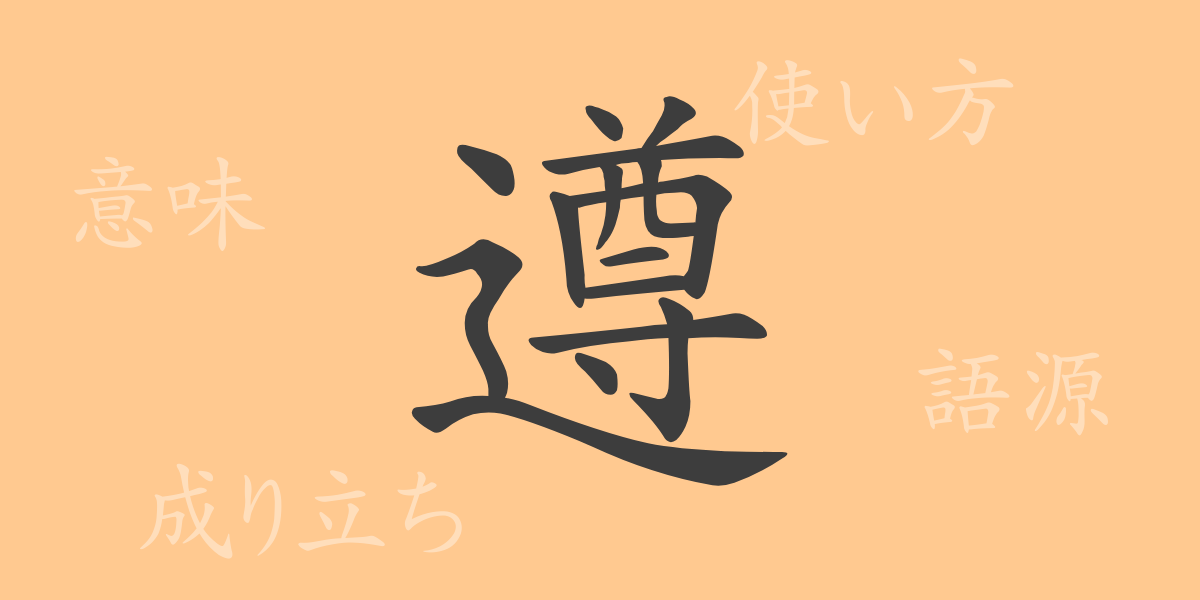The richness of Japanese culture is deeply intertwined with kanji. Each character holds its own meaning and history, reflecting the depth of the Japanese language. In this article, we will focus on the kanji “遵(じゅん, jun).” While it may not be frequently seen in everyday life, this character plays a crucial role in contexts involving adherence to laws and regulations. We will delve into the origin, meaning, usage, pronunciation, and idiomatic expressions related to “遵(じゅん, jun).” Through this exploration, you will appreciate the significance of this kanji in Japanese society.
遵の成り立ち(語源)
The kanji “遵(じゅん, jun)” originated in ancient China. It is composed of “巽(そん, son)” meaning “to cross a river,” and “彡(さん, san)” meaning “mark.” This combination represents the act of following the flow of a river, from which the meanings “to follow” and “to adhere” were derived. Over time, it was adopted in Japan to signify adherence to morals and standards, and it is commonly used in the context of observing laws and regulations.
遵の意味と用法
The kanji “遵(じゅん, jun)” means “to follow,” “to comply,” or “to adhere.” It is mainly used to indicate the act of following and complying with something, such as laws, rules, or traditions. For example, the phrase “法を遵守する(ほうをじゅんしゅする, hou o junshu suru)” emphasizes the act of obeying the law.
遵の読み方・画数・部首
How is the kanji “遵(じゅん, jun)” read and structured in Japanese?
- 読み方: 音読みでは「ジュン(jun)」、訓読みでは特にありません。
- 画数: 「遵(じゅん, jun)」の画数は18画です。
- 部首: 「遵(じゅん, jun)」の部首は「辵(しんにょう, shinnyou)」。道を示す部首で、動きや進行を意味する漢字に使われます。
遵を使った熟語・慣用句・ことわざとその意味
What idiomatic expressions and proverbs feature “遵(じゅん, jun)”?
- 遵守(じゅんしゅ, junshu): To observe and comply with rules or laws.
- 遵法(じゅんぽう, junpou): To obey the law; an attitude of adhering to laws and regulations.
- 遵命(じゅんめい, junmei): To obey an order.
- 遵奉(じゅんぷう, junpou): To obey respectfully.
These expressions are often used in social contexts to maintain order, indicating an individual’s adherence to the rules and regulations of a group.
遵についてのまとめ
The kanji “遵(じゅん, jun)” is indispensable for maintaining laws and social order in Japan. Understanding its origin and meaning helps us appreciate the richness of the Japanese language and the importance of norms in society. Following rules is not just about obedience but also about building an orderly society. Through this article, we hope you gain insight into the depth of meaning in “遵(じゅん, jun)” and the weight carried by words that incorporate this character.

























